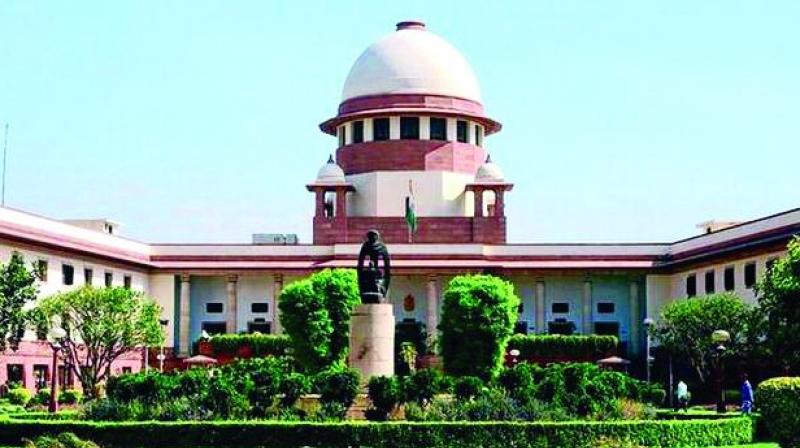Delayed prosecution is blamed for acquittals
Despite Constitutional rights, court trial gets undue delays.

Hyderabad: Delays in investigation of cases by law-enforcing agencies results in a majority of cases ending in acquittal.
The Supreme Court has, from time to time, reiterated that no investigating agency can take an unduly long time to complete an investigation. A timely investigation is recognised as part of the fundamental right of fair procedure under Article 21 of the Indian Constitution.
On May 1, the Supreme Court, dealing with an application by the Central Bureau of Investigation seeking extension of time for investigation of a case, observed that “inordinate delay in completing investigation may be taken as presumptive proof of prejudice particularly when accused is in custody so that prosecution does not become persecution.”
The bench of Justice A K Goel and Justice Indu Malhotra observed that an in-house mechanism is needed to ensure that there is no undue delay in completing the investigation, and remedial steps must be taken if there is such undue delay.
Section 167 of the Criminal Procedure Code mandates that the investigating officer shall file the charge sheet in 90 days in cases where the punishment prescribed is for death, life imprisonment and imprisonment of not less than 10 years; in other cases, the charge sheet must be filed before the trial court within 60 days.
C. Mallesh Rao, senior criminal lawyer, who appeared for Abdul Karim Telgi, the kingpin of the multi-crore stamp paper scam, says that in 99 per cent of cases the police do not file the charge sheet as per the time limit prescribed in the Cr PC.
He said that Telgi was arrested in 1999 by the Hyderabad police and later the case was transferred to the Central Bureau of Investigation, which claims to be the country's premier investigating agency. The CBI filed the final charge sheet in 2012 because when it had filed the first charge sheet in 2006, the trial court had returned the charge sheet noting some defects. It took six years for the agency to rectify those defects and present the charge sheet.
Mr Rao said the delay in filing the charge sheet not only denies the right of the accused for a plea bargain, it also defeats the right of the accused to seek timely justice.
He felt that the trial court had primary responsibility to drive the investigating agencies to file the charge sheet within the prescribed time in cases when there are no extraordinary circumstances to delay the probe.
He explained that, generally, investigation gets delayed in economic offences and cheating and other white collar offences, as the investigating agencies have to collect and examine lot of material papers. But in bodily offence cases such as rape, murder, assault, attempt to murder, the investigating agencies have every opportunity and possibility to file the charge sheet within the prescribed time limit.
Maintaining that as long as the charge sheet is not filed in a case it should be considered as pending case for investigation, the criminal lawyer said that particularly in rape cases where the victim is alive, the police can easily file the chargesheet within days from the date of arrest of the accused because the probe would end with the arrest of the accused.
He explained that in most cases of rape there will not be any eye-witnesses and the victim's evidence and identification of the accused are the key factors to prove the offence.
Police can begin preliminary trial of accused: Expert
Though the Criminal Procedure Code empowers the investigating agency to file supplementary charge sheets after the chargesheet filed against the prime accused arrested in a case, this power is never utilised.
S. Pradeep Kumar, a criminal lawyer, says that in most cases the police do not file the chargesheet on the grounds of apprehending the absconding accused in the case.
Mallesh Rao, senior criminal lawyer, says that once the prime accused are arrested, the police have the power to file the chargesheet and to seek permission from the court to conduct trial against the arrested accused and permit them to continue the probe with regard to other accused in the case.
He said that the law permits to conduct separate trial against the absconding accused in the case whenever they are arrested and a supplementary charge sheet can be filed against them.
But this power is rarely used by investigating agencies, and that is why most case are pending investigation, he added.

